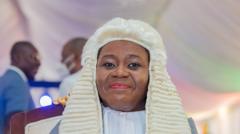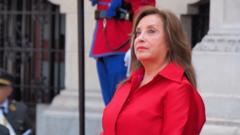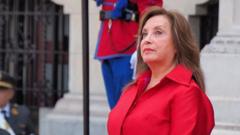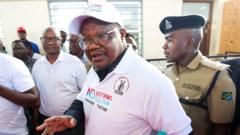**The situation underscores the volatility of South Korean politics, with major implications for its governance and judicial integrity.**
### Arrest Warrant for Impeached President Yoon Sparks Political Turmoil in South Korea
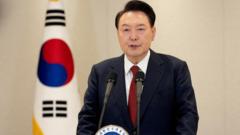
### Arrest Warrant for Impeached President Yoon Sparks Political Turmoil in South Korea
**Seoul issues an arrest warrant against suspended president Yoon Suk Yeol amid escalating political strife over martial law attempts.**
A court in Seoul has taken a significant step, issuing an arrest warrant for South Korea's suspended president, Yoon Suk Yeol, in light of his controversial efforts to declare martial law on December 3. This action follows Yoon's failure to respond to three summons for questioning regarding allegations of insurrection and abuse of power.
The request for the arrest warrant was formally lodged by investigators late Sunday, leading Yoon's legal counsel to label the move as "illegal." He is the first sitting president in South Korea to face the prospect of arrest, which highlights the exceptional nature of the current political crisis. Following Yoon's martial law declaration, both he and his successor have faced impeachment proceedings initiated by the National Assembly.
As the investigation unfolds, authorities have until January 6 to execute the warrant, although practical challenges may impede their efforts. Yoon's security team has shown aggressive resistance against investigators, previously preventing them from executing court-approved searches at both the presidential office and Yoon's residence. These past incidents suggest that prominent political figures in South Korea have historically evaded arrest through the physical intervention of their supporters.
Legal experts representing Yoon argue that a president's authority to impose martial law is constitutionally recognized, rendering the arrest unjustifiable. Yoon has reaffirmed his commitment to facing his legal responsibilities despite his challenges, declaring he would "fight to the end." However, his precise location remains unspecified, and authorities have enforced a travel ban against him.
Having been suspended from presidential functions since December 14 due to impeachment, Yoon's tenure will conclude only if the country's constitutional court affirms the impeachment. As of now, the court is under-staffed with only six judges in a bench of nine, raising the stakes for the outcome of any impeachment ruling. Additionally, recent political maneuvers have thwarted opposition efforts to augment the bench with three new judges, undermining their initiative to enhance impeachment prospects.
The opposition is not standing idle, as they have shifted their focus to impeaching acting Prime Minister Han Duck-soo, who took over following Yoon's suspension. Their efforts may extend to Choi Sang-mok, the acting president and finance minister, demonstrating the intensifying struggle within South Korea's political arena.










